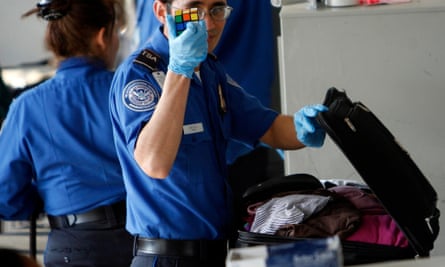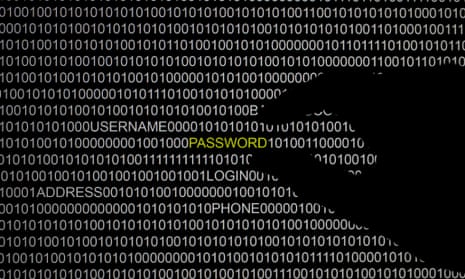David Cameron has made some headline-grabbing election promises, but none so technically implausible as his vow to eliminate communications tools that “we cannot read” earlier this year. He’s not alone in proposing a ban on effective cryptographic tools. The FBI wants the same thing, and their zeal to protect the state from citizens’ secrecy has even prompted it to alter its exemplary security advice. The suggestion that Americans should encrypt their devices so as to protect their data when they inevitably lose them, have them stolen or throw them away without securely erasing them has been expunged from the FBI’s site.
It’s impossible to overstate how bonkers the idea of sabotaging cryptography is to people who understand information security. If you want to secure your sensitive data either at rest – on your hard drive, in the cloud, on that phone you left on the train last week and never saw again – or on the wire, when you’re sending it to your doctor or your bank or to your work colleagues, you have to use good cryptography. Use deliberately compromised cryptography, that has a back door that only the “good guys” are supposed to have the keys to, and you have effectively no security. You might as well skywrite it as encrypt it with pre-broken, sabotaged encryption.
There are two reasons why this is so. First, there is the question of whether encryption can be made secure while still maintaining a “master key” for the authorities’ use. As lawyer/computer scientist Jonathan Mayer explained, adding the complexity of master keys to our technology will “introduce unquantifiable security risks”. It’s hard enough getting the security systems that protect our homes, finances, health and privacy to be airtight – making them airtight except when the authorities don’t want them to be is impossible.
That’s a technical argument, and it’s a good one, but you don’t have to be a cryptographer to understand the second problem with back doors: the security services are really bad at overseeing their own behaviour.
Once these same people have a back door that gives them access to everything that encryption protects, from the digital locks on your home or office to the information needed to clean out your bank account or read all your email, there will be lots more people who’ll want to subvert the vast cohort that is authorised to use the back door, and the incentives for betraying our trust will be much more lavish than anything a tabloid reporter could afford.

If you want a preview of what a back door looks like, just look at the US Transportation Security Administration’s “master keys” for the locks on our luggage. Since 2003, the TSA has required all locked baggage travelling within, or transiting through, the USA to be equipped with Travelsentry locks, which have been designed to allow anyone with a widely held master key to open them.
What happened after Travelsentry went into effect? Stuff started going missing from bags. Lots and lots of stuff. A CNN investigation into thefts from bags checked in US airports found thousandsof incidents of theft committed by TSA workers and baggage handlers. And though “aggressive investigation work” has cut back on theft at some airports, insider thieves are still operating with impunity throughout the country, even managing to smuggle stolen goods off the airfield in airports where all employees are searched on their way in and out of their work areas.
The US system is rigged to create a halo of buck-passing unaccountability. When my family picked up our bags from our Easter holiday in the US, we discovered that the TSA had smashed the locks off my nearly new, unlocked, Travelsentry-approved bag, taping it shut after confirming it had nothing dangerous in it, and leaving it “completely destroyed” in the words of the official BA damage report. British Airways has sensibly declared the damage to be not their problem, as they had nothing to do with destroying the bag. The TSA directed me to a form that generated an illiterate reply from a government subcontractor, sent from a do-not-reply email address, advising that “TSA is not liable for any damage to locks or bags that are required to be opened by force for security purposes” (the same note had an appendix warning me that I should treat this communication as confidential). I’ve yet to have any other communications from the TSA.
Making it possible for the state to open your locks in secret means that anyone who works for the state, or anyone who can bribe or coerce anyone who works for the state, can have the run of your life. Cryptographic locks don’t just protect our mundane communications: cryptography is the reason why thieves can’t impersonate your fob to your car’s keyless ignition system; it’s the reason you can bank online; and it’s the basis for all trust and security in the 21st century.
In her Dimbleby lecture, Martha Lane Fox recalled Aaron Swartz’s words: “It’s not OK not to understand the internet anymore.” That goes double for cryptography: any politician caught spouting off about back doors is unfit for office anywhere but Hogwarts, which is also the only educational institution whose computer science department believes in “golden keys” that only let the right sort of people break your encryption.
